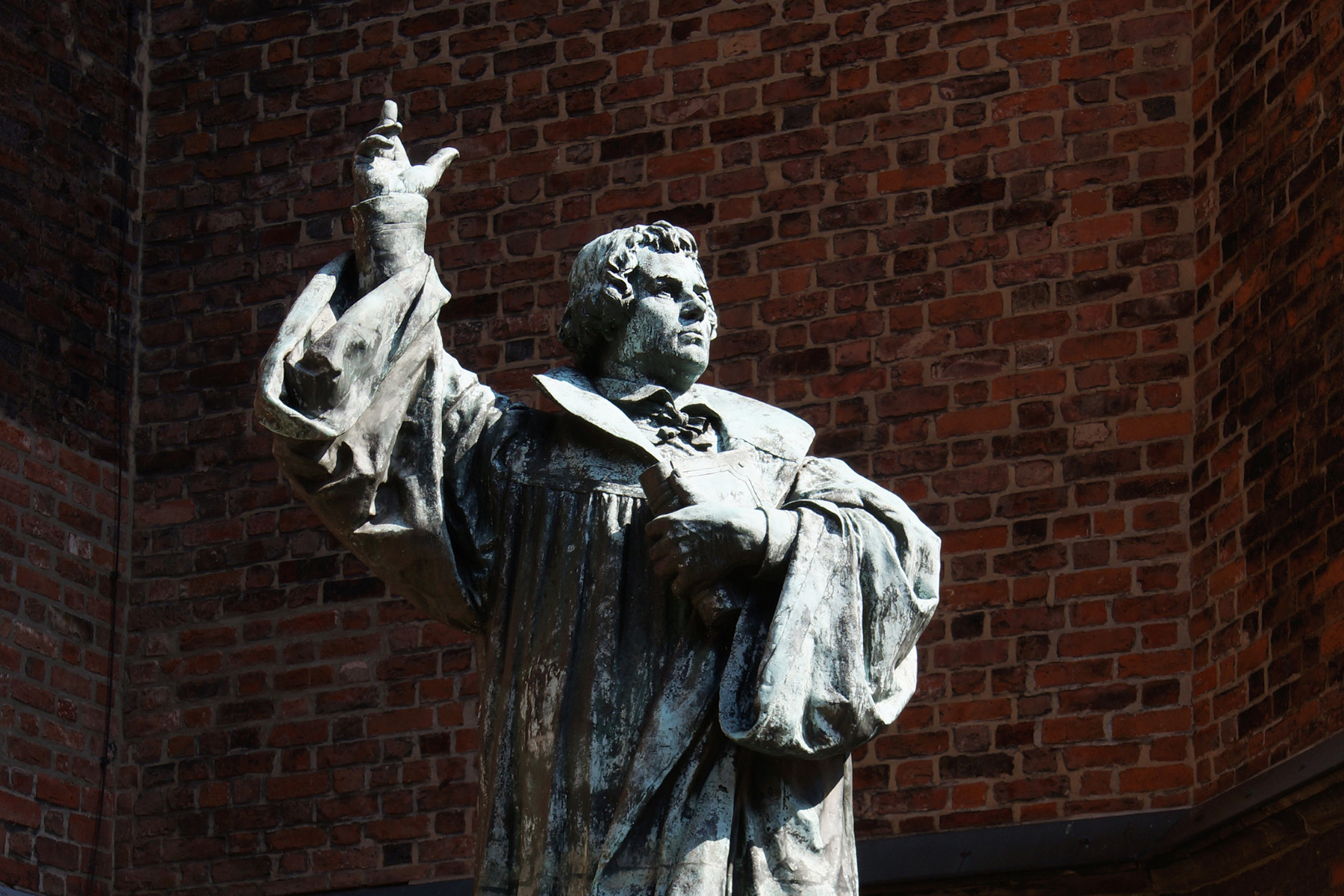Is The Reformation Worth Celebrating?
 Over five hundred years ago an event took place that is easily overlooked by some, but it is one that ought to be remembered and celebrated. On that occasion an Augustinian Friar sparked a controversy in the Roman Catholic Church that yielded some wide-ranging results—some positive, some negative. Of course, the event I refer to is the Protestant Reformation and the Augustinian Friar, none other than Martin Luther. The eventful movement inspired the reshaping of Christian Europe, and the celebrated and excoriated theologian of Wittenberg placed his indelible mark on Christian ecclesiastical thinking.
Over five hundred years ago an event took place that is easily overlooked by some, but it is one that ought to be remembered and celebrated. On that occasion an Augustinian Friar sparked a controversy in the Roman Catholic Church that yielded some wide-ranging results—some positive, some negative. Of course, the event I refer to is the Protestant Reformation and the Augustinian Friar, none other than Martin Luther. The eventful movement inspired the reshaping of Christian Europe, and the celebrated and excoriated theologian of Wittenberg placed his indelible mark on Christian ecclesiastical thinking.
The problem that faced sixteenth-century Europe was a failed theology. Roman Catholic structures had become rigid and inflexible, not answering to the needs of the people. The demands for perfection were high, and fulfilling those demands was impossible. Roman theologians, recognizing it was not an easy thing to be saved, urged the laity to “do that which is in you” (facere in quod se est). The idea was that God, looking down from his heaven, would recognize the attempt to do the good—even though flawed—and would reward that effort with more grace to do the next right action. Through this process it was thought one could accumulate enough merit to become a virtuous person and thus achieve heaven. The underlying assumption was that there is an essential continuity between humanity and God based on good works.
Luther realized that the answer to a failed piety is not to double down and urge the laity to work a little harder or to crank up their devotion to the sticking point. He realized that the only adequate solution was to return to Scripture to find solutions there. Luther was anxious to promote the primacy of Scripture in such a way that it can challenge and tear down whatever stands opposed to the gospel while building up whatever promotes the centrality and preeminence of Jesus Christ. Sola Scriptura becomes a Christological formula in Luther’s hands in such a way that the Word of God—over against Church Tradition—became the fountain and source for the church, salvation, life, and action.
In the time of the Reformation, Luther’s theology rejected the assertion of the medieval church that tended to assume human continuity with God and its ability to relate to God through works. In its place, the Reformation was an attempt to think according to the gospel word that creates life along a different structure—namely, from a discontinuity with God and an inability to relate to God through works to a relationship with God which, in the Bible and in Reformation thought, is called faith.
Andrew Pettegree in his book, Brand Luther: How an Unheralded Monk Turned His Small Town into a Center of Publishing, Made Himself the Most Famous Man in Europe—and Started the Protestant Reformation, captures the unexpected story of how Luther harnessed the power of innovative technology to promote this new set of religious ideas that were long overdue. It might come as a bit of a surprise that the Reformation was on the cutting edge of the latest technology. But it was not only the printing press that was key, but also the new approach to communicating with people on a direct basis that marks out the Reformation. Luther chose to speak directly to the laity in the vernacular with a popular format that could be understood and inspiring. Leaving behind fat tomes in Latin, Luther worked rapidly to produce small booklets in German replete with images that appealed to a population with a growing appetite to take charge of their own spiritual lives. These inexpensive broadsides were easy to mass produce and tapped into the widespread dissatisfaction with current religious practice. This “technological” advance, in conjunction with Luther’s revolutionary message, enabled the movement to spread and develop and ultimately to change the religious landscape of Europe.
The Protestant Reformation held out room for the recreating power of the Word of God. To do so, it took a bold step in the direction of affirming a radical self-reflection and course correction that is what we mean when we speak about the gospel. The gospel is not simply a story to be told but a power at work to remake the church. And that is something worth celebrating in our own time.

Dr. Gordon Isaac is Berkshire Professor of Church History and Advent Christian Studies. He is the author of numerous books, including Reformation Celebration: The Significance of Scripture, Grace, Faith, and Christ (Hendrickson, 2018).